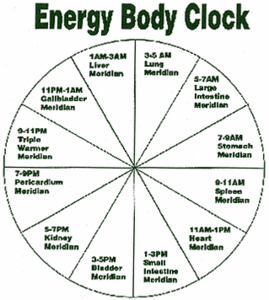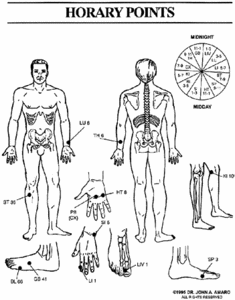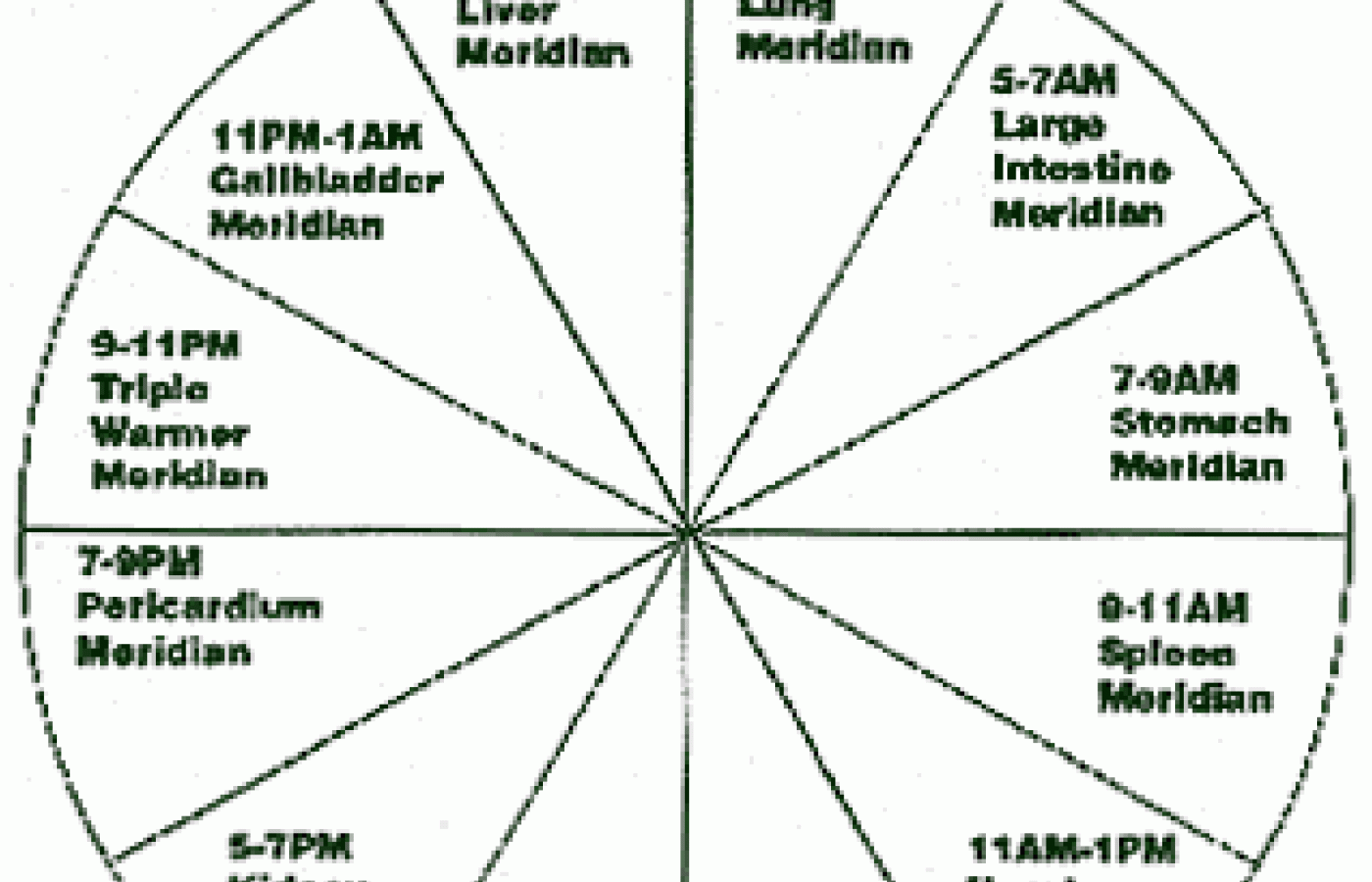The most important relationship I seek to nurture in the treatment room is the one a patient has with their own body. We live in a culture that teaches us to override pain, defer to outside authority, and push through discomfort. Patients often arrive hoping I can “fix” them, but the truth is, we can’t do the work for them. We can offer guidance, insight and support, but healing requires their full participation.
"Time Travel": Contemporary Applications for Jet Lag from Ancient Principles!
The world has become increasingly smaller with the advent of jet aircraft travel, allowing the average person to experience the joy of visiting faraway places previously unavailable to them with comfort and ease. However, jet travel has also brought misery to countless individuals being made miserable by the experience. I am referring, of course, to jet lag.
Jet aircraft flight traversing international time zones at speeds approaching mach one (speed of sound) may produce a variety of symptoms in 96% of flyers, according to a 1994 New Zealand study. The symptoms of jet lag include fatigue; disorientation; insomnia; nausea; irrational behavior and mental confusion to edema; headache; and anorexia. These symptoms may last from 1-10 days depending on the person. As a result, many vacations, political and business dealings have been dealt serious blows because of the symptoms of jet lag.
Most authorities agree that flights with destinations to the east of the point of embarkation produce more severe symptoms than flights heading to the west. Jet lag does not occur when flying north to south or vice versa; it only occurs when crossing time zones. Children age five and below do not appear to be as affected as adults.
The National Aeronautics and Space Administration (NASA) estimates that disturbance to the normal circadian rhythm of the adult body takes approximately one day of recovery per time zone crossed to return to normal, healthy pre-flight functioning.
As early as 1975, I developed an interest in jet lag while practicing in Kansas City, which was then the home base of TWA airlines. Because of my close proximity to so many people employed by the airline, I had access to (and treated) scores of international pilots, flight attendants, and of course, corporate executives who frequently flew back and forth to Europe on business trips. Having begun my practice of acupuncture in 1971, I had observed the phenomena of jet lag in numerous patients who constantly inquired about what to do, and had attempted several treatment approaches to ease the symptoms through acupuncture for four years. Having discussions on this topic during a certification program in Denver, a group of acupuncture students and I discovered a treatment approach that has since become internationally known and accepted.
Jet lag is a contemporary disorder. It obviously never existed until the utilization of jet aircraft; therefore, a treatment approach does not occur anywhere in Asian medicine literature or in practical treatment approaches passed on from master to student. It was apparent that if a benefit to jet lag was going to occur through acupuncture, it would have to be an entirely new approach. The thought alone was exciting.
Since most discoveries of significance come by accident, I cannot say anything different about this one. Even though I was given recognition as the first to formulate the concepts of acupuncture jet lag, the credit must be shared with that group of 25 or so MD/DC acupuncturists who helped formulate the theory. Since that was approaching 25 years ago, and since many acupuncturists practicing today were children (or not even born), unfortunately, those who were in on the early discussions of jet lag reversal are nameless. However, as one who has always stepped to the side for those masters and scholars, I believe the real credit still goes to our ancestral colleagues who first discovered the "horary cycle" of meridian flow.
Borrowing the knowledge of the general circulation of chi, and being aware that each meridian undergoes a two-hour time peak that moves and peaks from meridian to meridian as it travels though its general circulation, it was reasoned that if one were to reset the body clock utilizing the horary cycle, the body in theory could be made to function at the horary cycle of wherever the person is physically located on the planet, disregarding the effects of so-called "time travel." The best part of the theory is that it worked!

Having been a frequent traveler to Asia, Australia and Europe on numerous occasions, in addition to escorting as many as 66 doctors and spouses on 12 separate acupuncture study tours, I was able to experience first-hand the effects of the acupuncture jet lag formula. I was also able to observe personally those traveling companions that were given "sham" treatment as to their effects, or lack of it, as the case may be.
In virtually every instance in which the subjects were advised to stimulate the proper points based on the theoretical concept, they reported (and it was observed) that jet lag literally did not occur. They felt they were connected to the time zone of their newly arrived destination, as opposed to the time of their departure location. On the other hand, the subjects who were sacrificed and given sham treatment all suffered the effects of jet lag; in some cases, the effects were classified as severe. Hundreds of experiments were conducted over 12 years, with a rate averaging 96% perceived success in time zone flights over five hours between point of departure to destination.
When I first published the concept of beating jet lag in 1987, the procedure explained was much more complex than the one I am about to offer here; however, even though it was very effective, the revised approach is much more user-friendly (if not more effective).
For obvious reasons, there are certain common-sense things to consider in international time zone travel, the most important being proper and frequent hydration by drinking sufficient amounts of water. It is also important to hydrate the skin with water from a spray bottle. It is highly advised to completely eliminate coffee, tea, alcohol and juice in trade for water. This should be common sense; however, in observing fellow passengers, I find very few people are aware of hydration.
Jet lag is not restricted to long transoceanic flights. It can occur as easily in the three-hour time zone difference from coast to coast across North America. Therefore, the treatment described here is effective for jet lag, despite the length of the trip.
Once people finally arrive at their international destination, it is usual to reset their wristwatch to correspond to the time of day of their arrival. The problem of course is that a flyer's body clock is totally different than the time of day of their landing, thus producing the myriad of symptoms associated with jet lag. When it is 12:00 noon Friday in Los Angeles, it is 4:00 am Saturday in Shanghai. What one simply does to eliminate jet lag is reset the body clock while flying across international time zones, allowing one's horary cycle to be the same as the local time upon landing.

To accomplish altering the horary cycle to match local time, simply determine the time of day of your destination point upon boarding the aircraft. For example, if you are flying from Chicago to Munich, Germany on the 7:00 pm Monday flight, it is 2:00 am Tuesday in Munich. If, on the other hand, you are departing from New York at 10:00 am to fly to Honolulu, it is 4:00 am in Hawaii. Since each two-hour time zone on the horary cycle is attributed to a specific meridian, the jet lag formula begins by stimulating the horary point of the meridian which is active at the time of your destination. In other words, if you are boarding the 7:00 pm flight from Los Angeles en route to Tokyo, it is 12:00 noon in Tokyo the next day. Even though the horary cycle at your present location corresponds to the pericardium meridian beginning at 7:00 pm, it is 12:00 noon in Tokyo (your destination), which corresponds to the heart meridian. Thus, one stimulates the horary point for the Heart meridian (HT 8).
This same formula is repeated every two hours of flight as the flyer moves through time zones. Therefore, two hours later (9:00 pm on your wristwatch), it is 2:00 pm in Tokyo, which corresponds to the small intestine meridian. Stimulation would therefore be SI 5, the horary point for the SI meridian. Two hours later, it would be 4:00 pm in Tokyo corresponding to the bladder meridian and stimulation of BL66.

The rest of the formula simply follows the general circulation of chi around the cycle, stimulating the horary point for the meridian associated with the present time of day at your destination (Tokyo). Therefore, to continue the example, BL would be followed by KI, P, TH, GB, Liv, LU, LI, ST, SP and
In my experience, the best approach to jet lag is to treat the horary points for the entire 24 hour cycle ending where one began. In this example, treatment ends at the Heart meridian. Should you sleep through several horary zones, simply pick up upon your awakening. Remember that you must always stimulate the horary point for whatever time it is at your destination.
Upon arrival at your destination city, regardless of if you flew east to west or west to east, your body, mind and spirit will be operating on the time zone of your destination.
Stimulation may be achieved by any means of acupuncture. Needles are generally inserted .05 tsun with moderate stimulation. Needle retention of five to seven minutes is adequate. Treat bilaterally. Electronic and laser stimulation are acceptable alternatives to needles and produce startling results.
My personal favorite mode of stimulation is noninvasive: teishein. It is quick, effective, painless and easy to use. It is recommended to stimulate the point 25-30 times in short blasts of five strokes. The nonacupuncturist patient may have this procedure simply and easily explained, be given a copy of the attached charts and be advised to stimulate the points with something as easily available as a ballpoint pen. In this formula approach, the method of stimulation is of secondary importance to the application of the precise point.
On your return trip, employ the exact same rules: determine the time at your destination and begin stimulating the horary points according to the general circulation of chi. I once flew from Phoenix, Arizona to Melbourne, Australia to conduct a two-day, 16-hour lecture. The travel time was 24 hours each way, including auto travel, airport layover, etc. The whole experience lasted four days from time of departure to return, with no effect of jet lag in either direction. I arrived back in Phoenix at 10:00 pm and conducted office hours at 8:00 am the following morning.
This same approach can be effective in infants who have suddenly switched their days and nights, and in workers who frequently do swing shifts. In this case, have the patient stimulate the horary point for the time of day corresponding to the general circulation of chi. Stimulate the respective points every two hours moving through the cycle.
Best wishes on your future international travels. Remember: If you are going to take that "slow boat to China," you won't need this knowledge, but if you are going by air, you will find this to be one of the most significant things you will ever learn.



